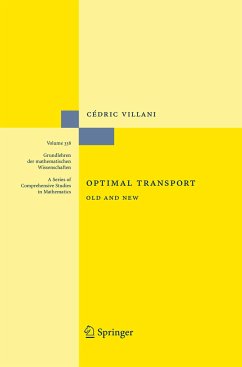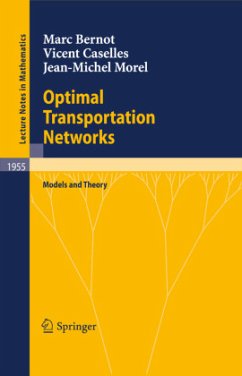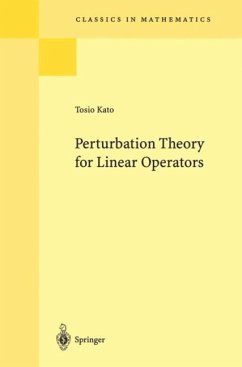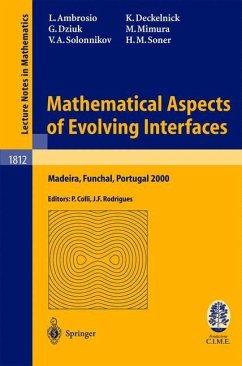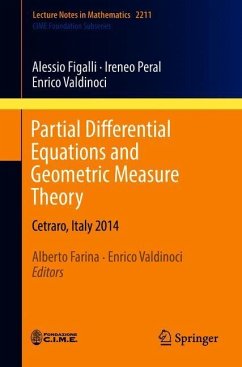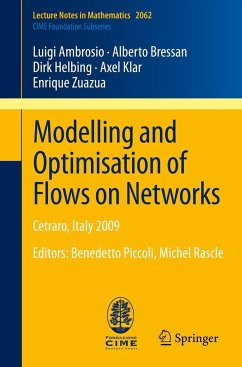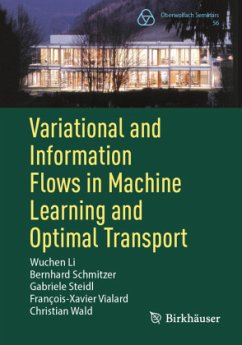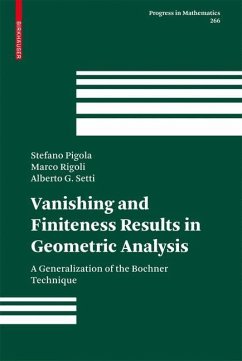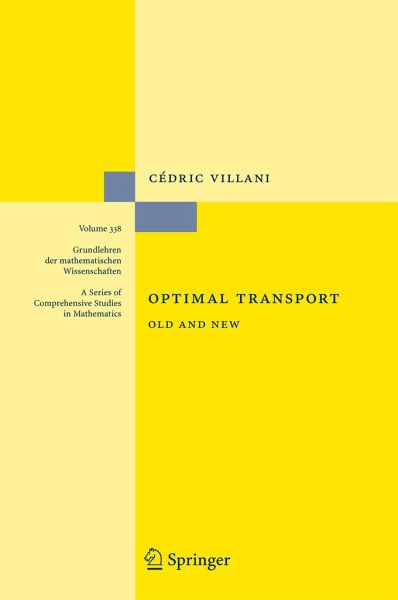
Optimal Transport
Old and New
Versandkostenfrei!
Versandfertig in 6-10 Tagen
115,99 €
inkl. MwSt.
Weitere Ausgaben:

PAYBACK Punkte
58 °P sammeln!
At the close of the 1980s, the independent contributions of Yann Brenier, Mike Cullen and John Mather launched a revolution in the venerable field of optimal transport founded by G. Monge in the 18th century, which has made breathtaking forays into various other domains of mathematics ever since. The author presents a broad overview of this area, supplying complete and self-contained proofs of all the fundamental results of the theory of optimal transport at the appropriate level of generality. Thus, the book encompasses the broad spectrum ranging from basic theory to the most recent research ...
At the close of the 1980s, the independent contributions of Yann Brenier, Mike Cullen and John Mather launched a revolution in the venerable field of optimal transport founded by G. Monge in the 18th century, which has made breathtaking forays into various other domains of mathematics ever since. The author presents a broad overview of this area, supplying complete and self-contained proofs of all the fundamental results of the theory of optimal transport at the appropriate level of generality. Thus, the book encompasses the broad spectrum ranging from basic theory to the most recent research results.
PhD students or researchers can read the entire book without any prior knowledge of the field. A comprehensive bibliography with notes that extensively discuss the existing literature underlines the book's value as a most welcome reference text on this subject.
PhD students or researchers can read the entire book without any prior knowledge of the field. A comprehensive bibliography with notes that extensively discuss the existing literature underlines the book's value as a most welcome reference text on this subject.





